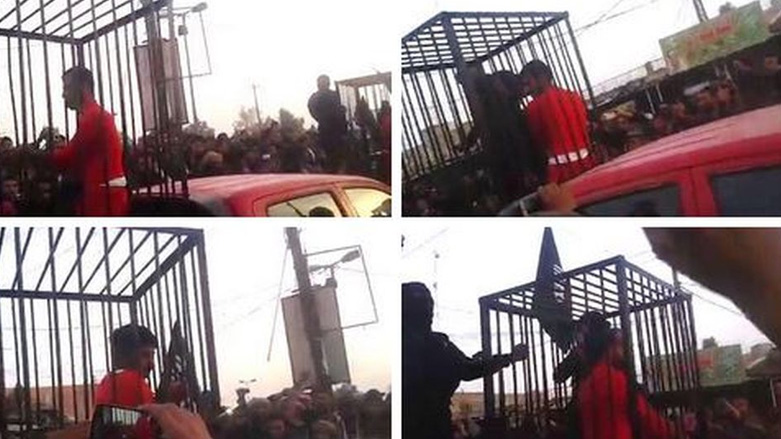Iraqi court ratifies confession of IS leader accused of capturing 21 Peshmerga

ERBIL (Kurdistan 24) – Iraq’s Supreme Judicial Council on Wednesday announced that a criminal court in Baghdad had approved the confession of “one of the most prominent terrorists” of the Islamic State (IS), Abu Hamza al-Kurdi, who served as the jihadist’s so-called Wali (Governor) of Kirkuk.
“The accused is responsible for many of the terrorist operations and was the governor north of Baghdad, being shown in photographs as such in several different ways before he was appointed by the organization as Wali of Kirkuk,” the statement reads.
“The most prominent operation carried out by the accused is when he captured 21 officers and soldiers from the Peshmerga forces and photographed them wearing orange suits in iron cages and wheeled them through the city of Mosul,” read the statement, referring to the location of a February 2015 incident that was previously reported to have taken place in the then-IS stronghold of Hawija, 30 miles south of Kirkuk.
The statement mentioned that the court has ratified the confessions of the accused "and took all the measures against him in accordance with the provisions of Article IV / 1 of the anti-terrorism law."
International observers, including the UN, human rights organizations, and multiple yearly country reports released by various other nations, have long documented the ongoing use of torture by Iraqi security forces to coerce confessions. Aside from calling into question the validity of any statements presented in Iraqi criminal courts in cases where there is little corroboration of crimes presented, criminal justice experts warn that this practice also delegitimizes court rulings in cases where there is a preponderance of evidence against a defendant.
On Tuesday, Iraq's Ministry of Interior announced that they had arrested another high-ranking IS leader who operated in Kirkuk, known as "Abu Ammar."
In 2014, the jihadist group occupied large swaths of territory in northern and central Iraq, distributed its operations in different parts of Iraq among its senior leaders.
Following the emergence of IS in 2014, it captured dozens of Peshmerga fighters, many of whose whereabouts still remain unknown.
About 2,000 Peshmerga were killed while fighting the extremist group and 12,000 more were wounded, according to the Peshmerga Ministry, which previously told Kurdistan 24 that 44 Peshmerga fighters have gone missing over the past few years.
Despite Iraq declaring a final victory against the extremist group in December, IS continues to launch sporadic attacks, including bombings, assassinations, and kidnappings in previously liberated areas.
Editing by John J. Catherine
